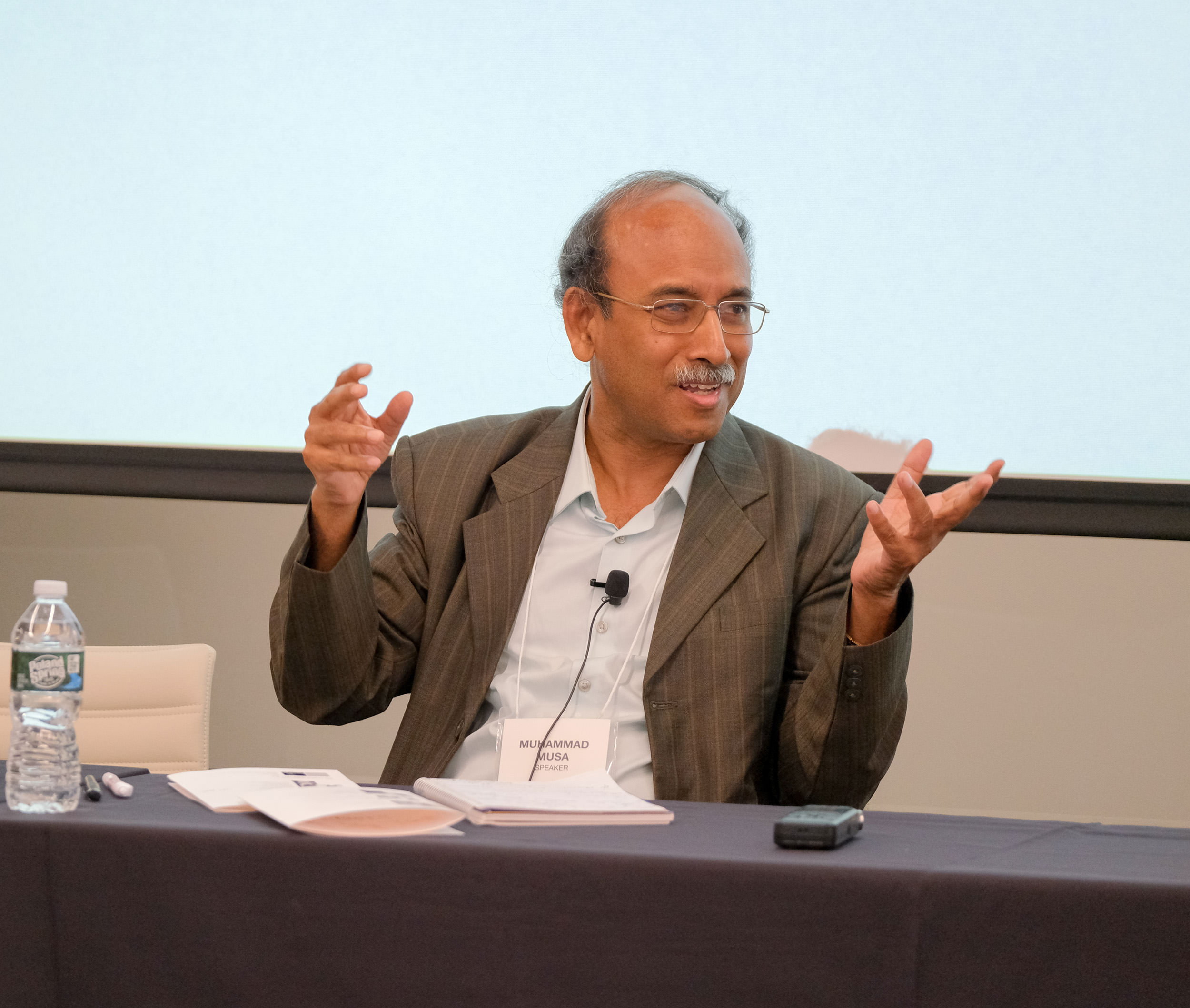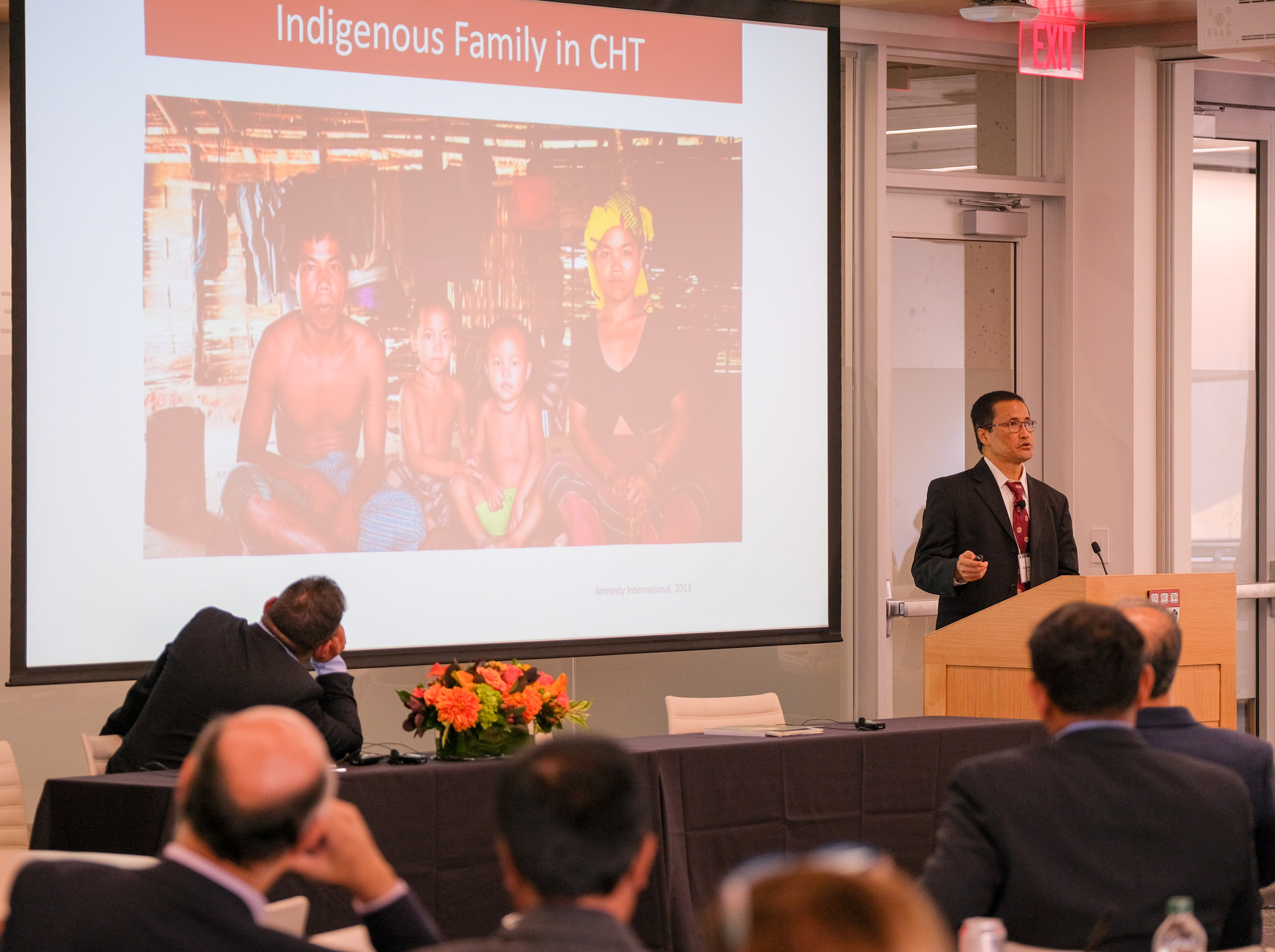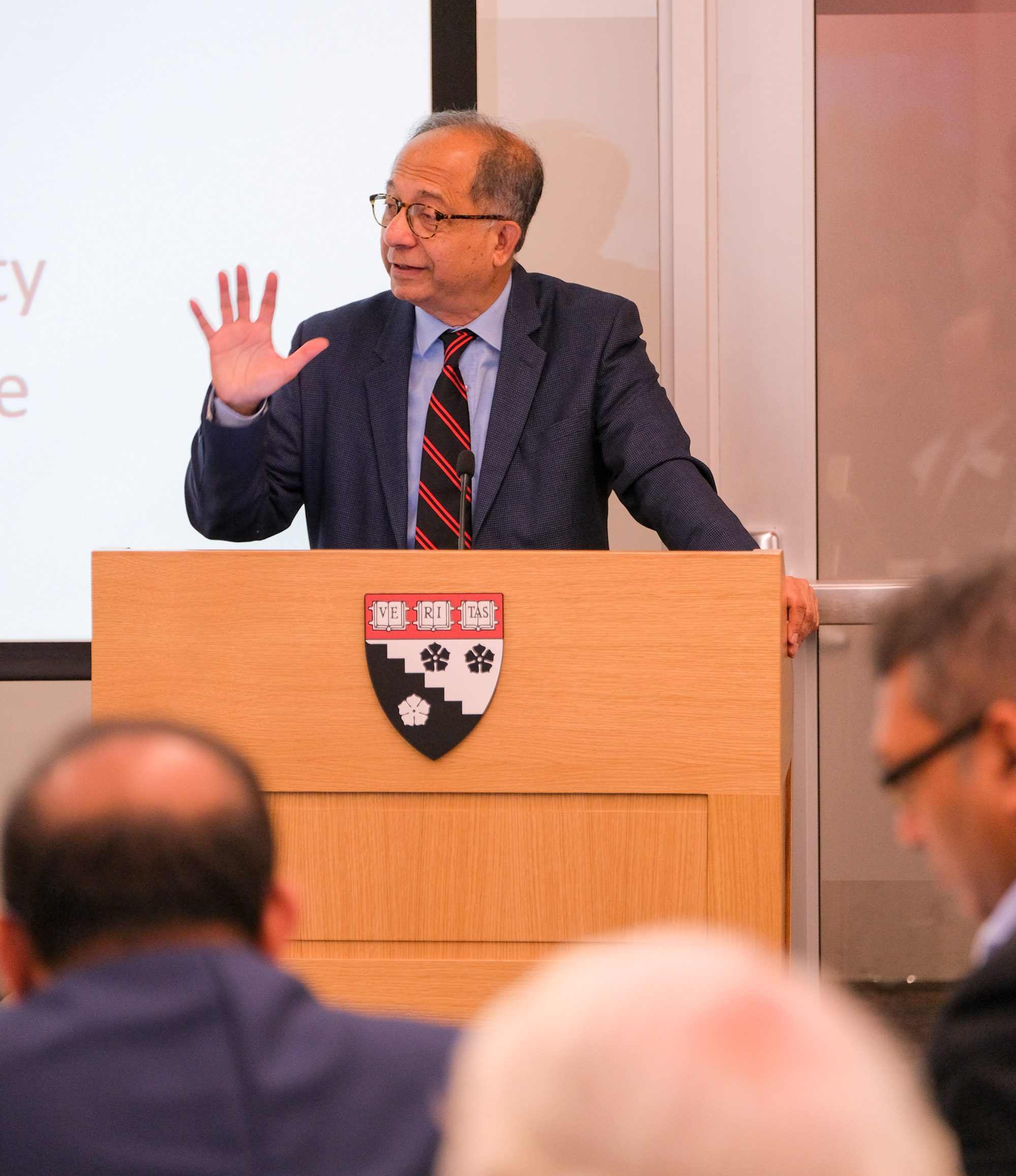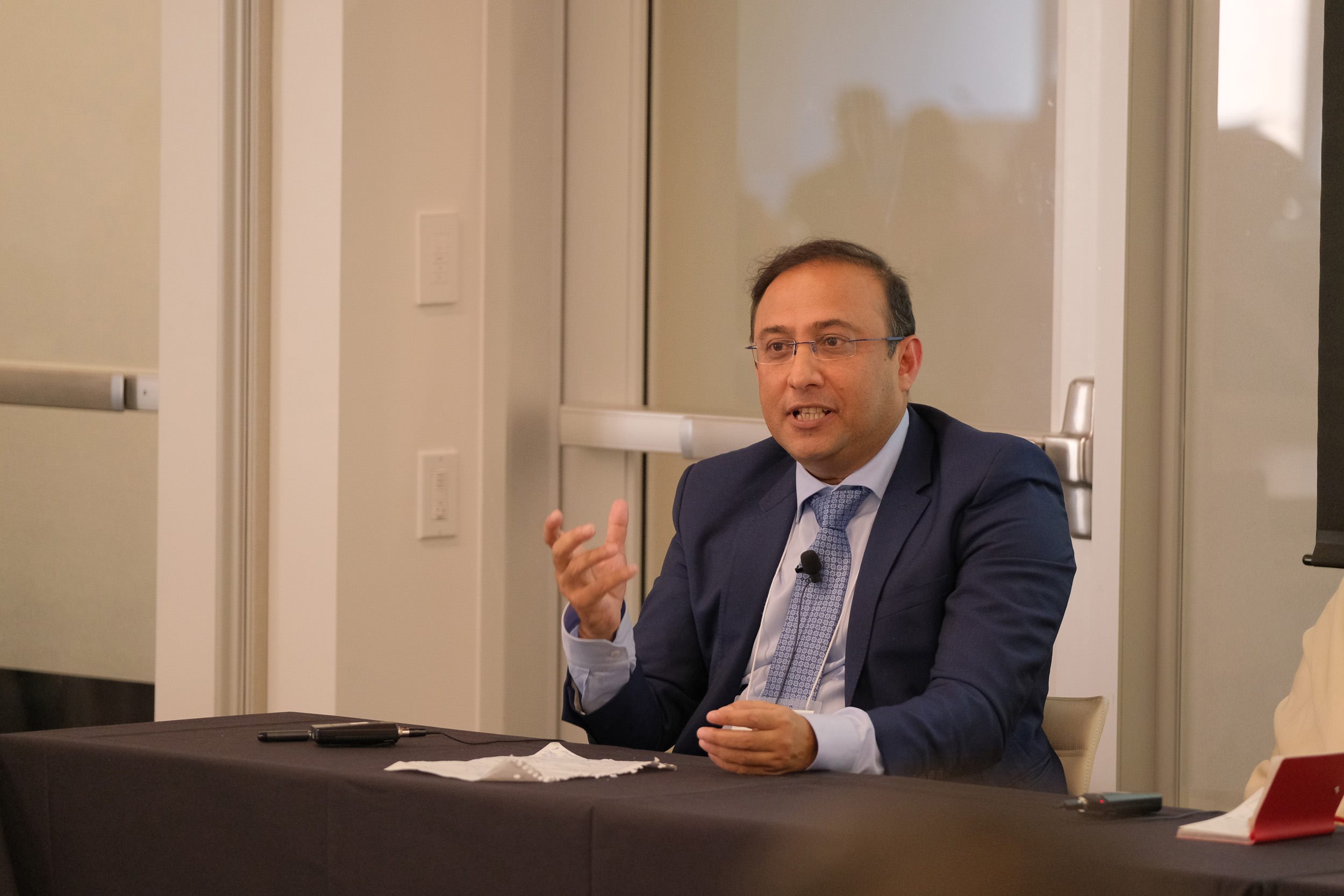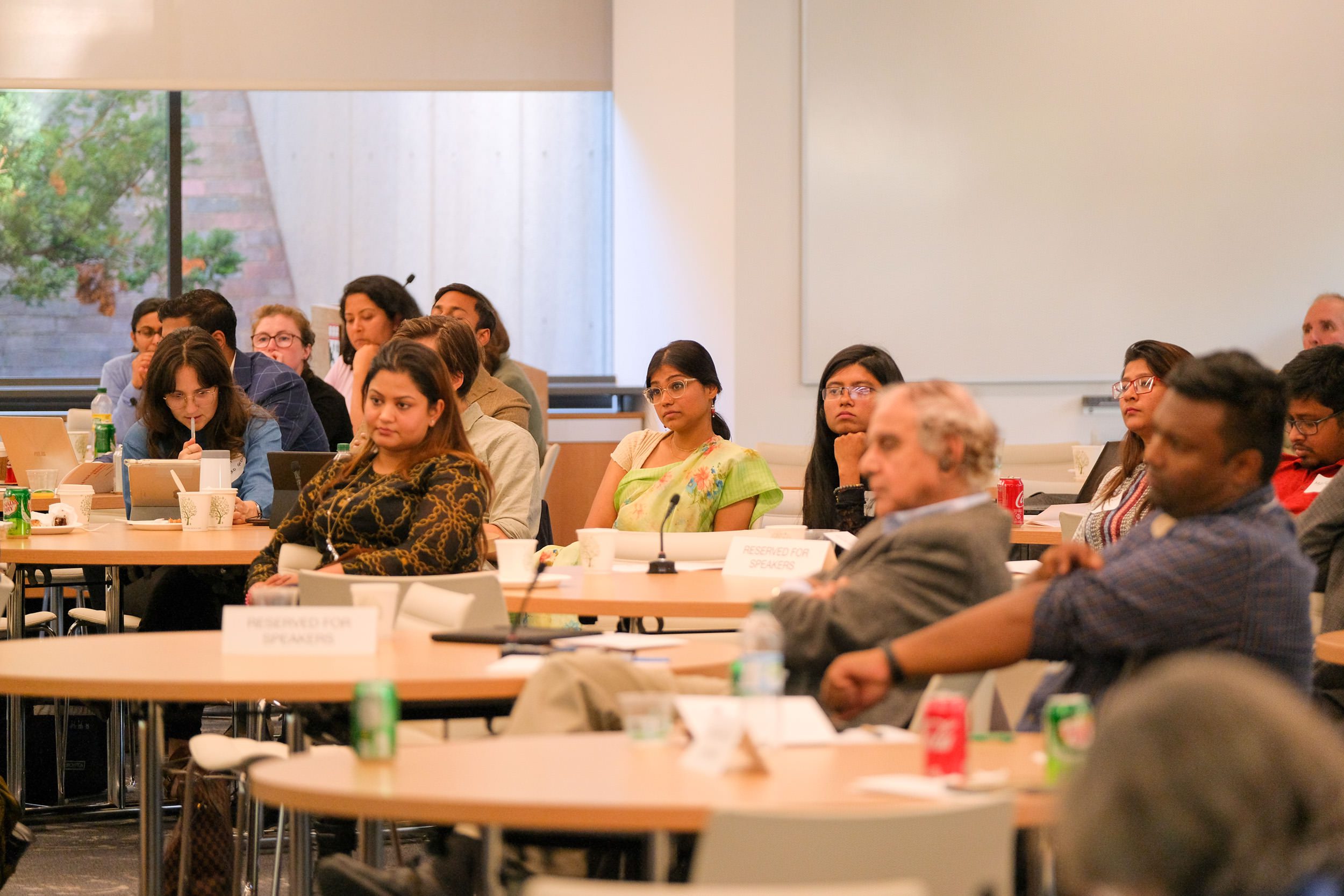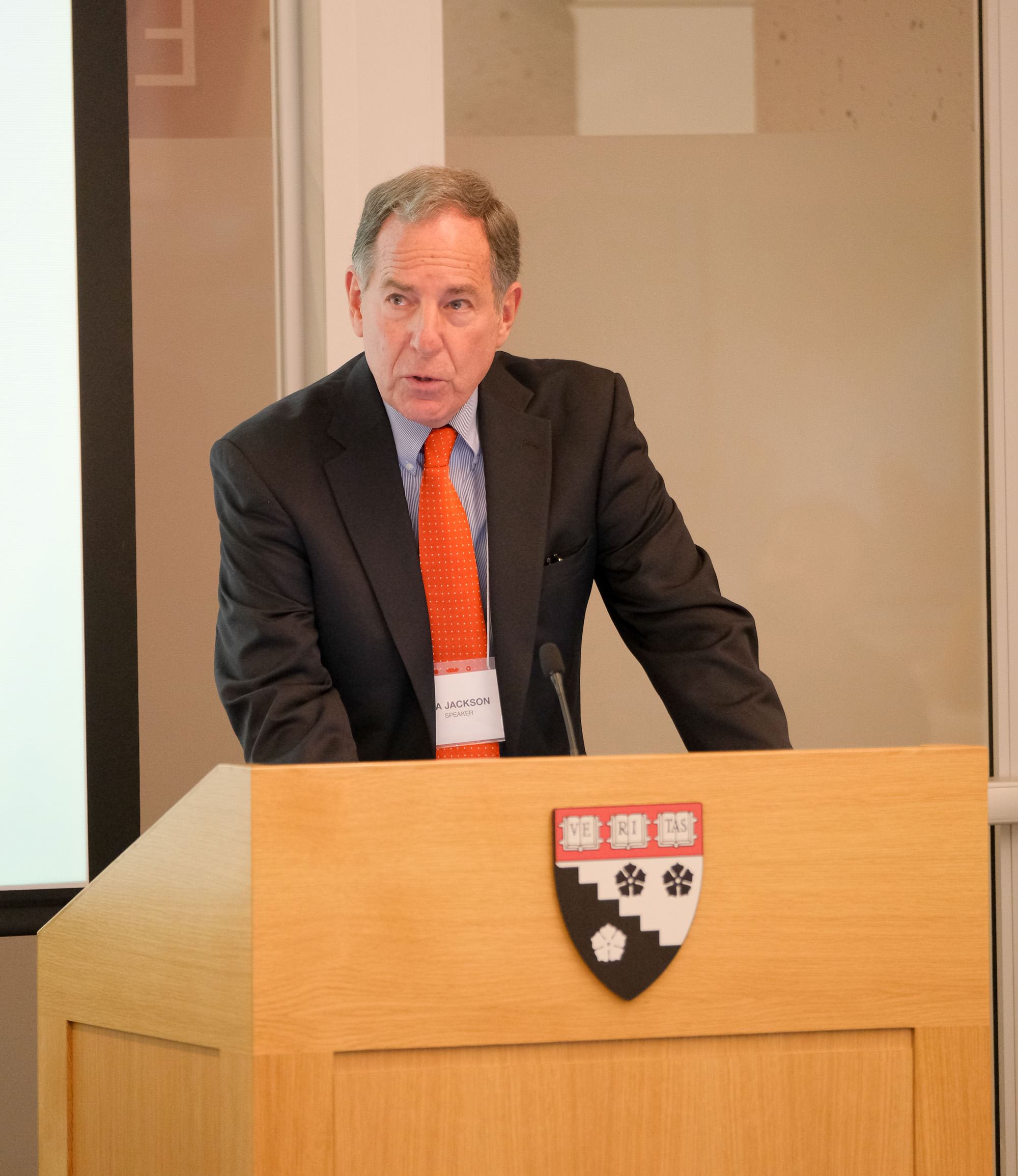2019 Bangladesh Rising Conference
Bangladesh is one of the most densely populated countries in the world, with the third fastest GDP growth rate. Despite its small geographical size, Bangladesh is on its way to becoming an economic and cultural giant. In our 2019 Bangladesh Rising Conference, experts from Harvard and peer institutions, as well as governing bodies and organizations across Bangladesh, discussed the nation’s economy, history, art and heritage, entrepreneurship, public health, and its actions to meet the UN’s Sustainable Development Goals.
Keynote speakers included Kaushik Basu, former Chief Economist of the World Bank, who led a panel on the Bangladesh economy and the nation’s economic resurgence through foreign investment. Gary Bass, Professor of Politics and International Affairs at Princeton University, delved into the legacy of Bangladesh’s 1971 war. Abul Kalam Azad, Principal SDG Coordinator with the Government of the People’s Republic of Bangladesh and the former Principal Secretary to the Prime Minister of Bangladesh, discussed the current efforts toward meeting the United Nations’ Sustainable Development Goals by 2030.
Welcome
- Iqbal Quadir, Senior Fellow, Belfer Center for Science and International Affairs, Harvard Kennedy School
- Reshmaan Hussam, Assistant Professor of Business Administration, Harvard Business School
Iqbal Quadir opened the session by pointing out some common misconceptions in the US regarding Bangladesh. “I went door-to-door to find investors in dozens of American companies to encourage them to go to Bangladesh and open mobile phone businesses. ‘We won’t go to Bangladesh because we are not Red-Cross,’ was their reply. I was lucky to find a Norwegian company who agreed to what I said about investing in Bangladesh, and currently that company is a $7 billion company,” he said.
Bangladesh is often compared with Wisconsin in size and population (“Almost the size of Wisconsin, but half the population of entire United States”). However, those who compare the two often ignore other relevant facts: Bangladesh has more arable lands than Wisconsin, and the fertility of soil is many times higher. “By ignoring such details, some people keep perpetuating the stereotypical picture of poverty and flood in Bangladesh, but we ignore how this country is rising as an economy. This conference is an attempt to bring such often-ignored perspectives towards Bangladesh,” Quadir said.
The Bangladesh Economy: The View from Outside
- Kaushik Basu, C. Marks Professor of International Studies and Professor of Economics, Cornell University; Former Chief Economist, World Bank
- Moderator: Tarun Khanna, Jorge Paulo Lemann Professor, Harvard Business School; Director, Mittal Institute
As former Chief Economist of the World Bank and Financial Advisor to the Government of India, Dr. Kaushik Basu reflected on his insider’s knowledge of the Bangladesh economy. “Out of 192, there are only 10 countries in the world that are growing at 7% rate. Among them, only five countries are growing stably. Bangladesh happens to be one of those five countries. In the initial years after its independence in 1971, Kissinger described Bangladesh as a ‘bottomless’ basket. That basket case is now the 42nd largest economy in the world,” Basu explained.
Resurgence and Foreign Direct Investment
- Abdur Rouf Talukder, Secretary of Finance, Government of Bangladesh
- Paban Chowdhury, Executive Chairman, Bangladesh Economic Zone Authority (BEZA)
- Abu Bakar Chowdhury, Asma Capita Partners, Managing Partner, Bahrain
- Khalid Quadir, Managing Partner, Brummer & Partners
- Moderator: Jeffrey Frankel, James W. Harpel Professor of Capital Formation and Growth, Harvard Kennedy School
One speaker gave the investor’s point-of-view regarding foreign direct investment (FDI). He suggested that Bangladesh does not have an image problem, but a fundamental problem. Though plenty of capital is available for Bangladesh — with his own estimate of up to 20% annual return on investment — the currency control measures are a large impediment. The Central Bank also appears weak and politically influenced, as demonstrated by the presence of 59 commercial banks, which reduces investor confidence.
According to Quadir, there aren’t enough private equity funds in Bangladesh, despite a strong demand for it from entrepreneurs. The start-ups that his private equity fund has invested in are earning an average 10-15% annual growth rate. Although Bangladesh welcomes FDI, it makes it very difficult for investors to take their investment out of the country. India was in a similar situation 10-15 years back, but opening the country has enabled large influx of private equity funds. Bangladesh can perhaps take lessons from that.
The Legacy of the 1971 War
- Gary Bass, Professor of Politics and International Affairs, Princeton University
- Moderator: Mahfuz Sadique, Research Associate, Center for Global Media, SOAS University of London and Bangladesh Correspondent, BBC News
Gary Bass, author of The Blood Telegram, discussed how Bangladesh’s Liberation War is a legacy of Cold War politics between the US and Soviet Union: Despite knowing about the genocide occurring in then-East Pakistan, President Nixon and Secretary Kissinger turned a blind eye to the matter, and chose not to exercise the political leverage it had over Pakistan to bring an end to the atrocity. Almost 50 years after the incident, the 1971 genocide is mostly forgotten around the world, primarily because powerful countries want their complicity forgotten.
There are strong parallels between the Bangladesh Liberation War and the current Rohingya genocide taking place in Myanmar. Powerful countries around the world, even those that have traditionally placed importance on upholding human rights, remain silent on the issue. Many are grappling with the rise of populism in national politics, while others do not wish to upset global powers. The Rohingya crisis has been left to Bangladesh as its own problem, similar to how Bangladeshi refugees in 1971 were left as India’s problem.
Strategies for Sustainable Development
- Abul Kalam Azad, Principal SDG Coordinator, Government of the People’s Republic of Bangladesh; Former Principal Secretary, Prime Minister of Bangladesh
- Gary Bass, Professor of Politics and International Affairs, Princeton University
- Muhammad Musa, Executive Director, BRAC International
- Moderator: Stuart Hart, Research Professor and Steven Grossman Distinguished Fellow, University of Vermont
The central focus of this session was understanding what Bangladesh is doing and can do to ensure sustainable growth in terms of social development, natural resource utilization, environmental protection, and climate change adaptation.
Abul Kalam Azad explained how the Prime Minister has instructed bureaucrats to pursue the UN’s Sustainable Development Goals akin to their approach with MDGs (in which Bangladesh had success). The state is taking steps to involve all government and private sectors, using data analysis to understand present shortcomings in SDG goals, hunting for resources through creative channels such as PPP and joint venture, and focusing on the localization of SDGs. Specific plans with yearly goals are being devised from the ministry level to the grassroot government offices to ensure proper implementation.
Gary Bass lauded the growth rate of Bangladesh, terming it remarkable given the human capital void left by targeted killings of Bangladeshi intellectuals during the 1971 Liberation War. However, he warned that the government was slowly exhibiting authoritarian tendencies, with freedom of speech being limited through the ICT Act and the Digital Security Act that recently passed. He attributed much of the growth experienced in the past to a strong civil society, and suggested that authoritarian tendencies are at odds with a strong civil society, weakening the latter.
Muhammad Musa shared his own story of being a refugee during the Liberation War, and said that he never imagined at that time that Bangladesh would be where it is now. Speaking on the growth of Bangladesh, he suggested that the role of female empowerment has been overlooked so far. The culture and gender dynamic in the country was shifting, which coincided with government policies to create work, leading to a large number of female workers engaging in the workforce.
Preserving the Heritage: New and Old Art Forms
- Farhan Karim, Assistant Professor of Architectural History, Kansas University
- Maung Nyeu, Research Scientist, New York University
Hailing from the remotest hill tracts of Bangladesh, Maung Nyeu had to fight every single step of the way to get education. He belongs to a small ethnic group of Bangladesh, and most of his peers dropped out of school at an early age due to poverty and a lack of logistic support. Their language is on the verge of extinction; their culture almost lost. After a long struggle, Nyeu found his way to Harvard, and from there met Noam Chomsky at MIT. Inspired by the legendary linguist, he started collecting stories and songs for children from the remote places where his home is situated. These stories and songs are now published in multiple foreign languages, creating a cultural bond among the children from the remote hills of Bangladesh and rest of the world.
“The people of Bangladesh gave blood for their mother tongue. Honoring their sacrifice, international mother language day on February 21st is observed throughout the world to celebrate all mother tongues. Bangla is the state language, but the country is multi-lingual; many small groups of ethnic people have their own languages here. These languages need to be preserved, otherwise such a rich culture will be lost forever. Our language is the tool through which our ancestors speak to us — which is why my mission is to preserve it as much as I can,” said Nyeu.
Rising Entrepreneurs: Opportunities for the Bangladeshi Start-up Ecosystem
- Prithwiraj Choudhury, Lumry Family Associate Professor of Business Administration, Harvard Business School
- Zareen Mahmud Hosein, Co-Founder and Partner, Snehasish Mahmud & Co.
- Rubana Huq, President, BGMEA
- Aminur Rashid, Entrepreneur, Pickaboo
- Moderator: Andy Wu, Assistant Professor of Business Administration, Harvard Business School
Prithwiraj Choudhury drew a parallel between India and Bangladesh due to their similar cultures and institutional history, suggesting that lessons can be learned from the former to understand how it has been able to bring members of its foreign diaspora back home. Choudhury noted how steps should be taken to build the talent locally, outside of big cities, where residents have deeper roots to the country and are more expected to stay.
Zareen Mahmud Hosein noted that the high-growth startup ecosystem was primarily dominated by males, with few female-led startups (ex. Shohoz, Cookups, and ShopUp) throughout the country. In contrast, small social media-based businesses were primarily run by female entrepreneurs, which often allowed a work-from-home set-up. While several accelerators are trying to support female-led high-growth startups (ex. Better Stories, YHer), social norms and the difficulty of raising capital contribute to a low female presence in the sector. She suggested that adequate mentorship and guidance could be potential solutions.
Aminur Rashid pointed out three major obstacles entrepreneurs face in the country:
- Skilled human capital, despite the abundance of applicants with university degrees. He suggested that the skills gap can be attributed to regurgitation-based education in the country, rather than skills-based ones.
- High borrowing rates for entrepreneurs, which makes it difficult to access debt capital. On the other hand, the bond and stock market suffer from manipulation, leading to a loss in credibility.
- Bureaucracy and policy uncertainty, with taxation policies changing annually. This makes it difficult to undertake long-term investments, like startups.
Public Health and Migration: Successes and Challenges
- Ruhul Abid, Associate Professor, Brown University Alpert Medical School
- Richard Cash, Senior Lecturer on Global Health, Harvard School of Public Health
- Reshmaan Hussam, Assistant Professor of Business Administration, Harvard Business School
- Moderator: Linda Harrar, Senior Program Manager, WGBH, Boston
Reshmaan Hussam described a realist, field-based view of the ongoing Rohingya refugee crisis in Bangladesh. “In the Rohingya camps, children are not given any education; they have no hope for the future. People living in those camps spend their days in forced idleness. These sad situations arose not because the Bangladesh government is cruel — we can see practical catalysts behind those decisions once we examine them from a Bangladeshi strategic vantage-point. Myanmar has forced these people into Bangladesh; they must go back home someday, one way or another. If these people are given education and are allowed to integrate with Bangladeshi society, Myanmar will win; they will get away with heinous crimes such as murder, rape, and forced migration,” she explained.
As someone who has visited Bangladesh every year since 1967, Richard Cash has played key roles in the research of Bangladeshi public health. “The general mortality rate in Bangladesh has come down from 160 per thousand to 30. Diseases like small-pox and diphtheria became extinct like dinosaurs. Previously, there was only one doctor for 50,000 people; now, there are doctors all over the place. The soil of Bangladesh is so fertile — throw some seeds anywhere you want, and something will grow. However, the miracle of Bangladesh cannot be attributed to any single factor. In my opinion, the most amazing factor is the people of Bangladesh. They are resilient, hardworking, and fiercely dedicated to their country. The civil society also plays a great role here; they make a whole lot of difference in the socio-political scenario,” he said.
Closing Remarks
- Ira Jackson, Visiting Lecturer on Sociology, Harvard University
Ira Jackson concluded the event with a list of twelve major questions and insights from the panel discussions.
- How can Bangladesh transform its image and leverage its density dividend? How can we help to transform Bangladesh’s image from one that emphasizes liabilities to one that showcases its incredible assets and strengths?
- After being born into a negative 14% GDP growth, Bangladesh now exceeds Pakistan in per capita income. How can Bangladesh best benefit from its inclusion in the exclusive 7% club?
- An increasingly diversified manufacturing sector has given Bangladesh comparative advantage. How can this manufacturing advantage best be leveraged, especially over the next 10-15 years, when Bangladesh might yet become a mini-China?
- Increased FDI represents a major opportunity. How can the government reform and professionalize to facilitate greater private risk capital investment?
- Why has there been no accountability or even accounting of the U.S. culpability and complicity in the genocide of 1971?
- Bangladesh is secular and democratic, but there are cautionary yellow lights flashing, warning against authoritarian tendencies. How can Bangladesh best retain its role as a “democratic overachiever?”
- How can the vast Bangladesh diaspora be more deeply engaged, beyond valuable remittances? How might this huge global talent pool be tapped for their talent?
- How can Bangladesh best preserve its rich indigenous culture, including marginalized art, medicinal plants, languages, architecture, dance and music, and their ethical and moral legacy, at the same time that it pursues modernization and growth and national pride?
- How can Bangladesh accelerate the process of innovation and expand the opportunities within the Bangladesh start-up ecosystem?
- What role can and should higher education play in developing the talent that Bangladesh needs, and in creating the applied research and knowledge that Bangladesh deserves to capture more value-added elements of economic and social progress?
- Bangladesh has achieved phenomenal, perhaps miraculous, success in terms of health, but as Bangladesh urbanizes, with a greater reliance upon private medical intervention, how can this progress be sustained?
- How does the whole of society, inclusive approach emphasized by the presenters today achieve the impressive, monumental tasks and dream for a golden Bangladesh in 2100?



